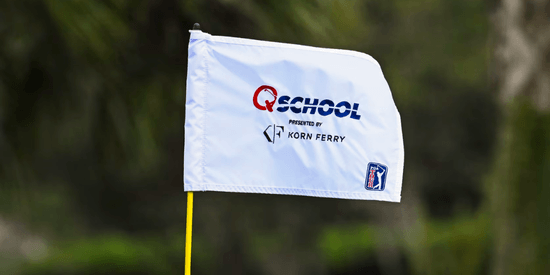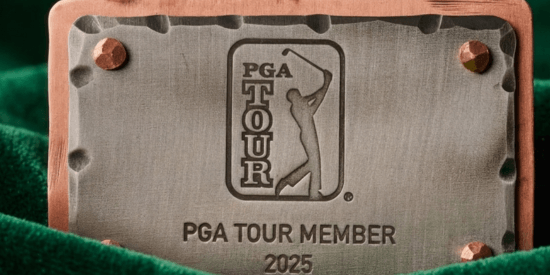Titleist announces 915 Fairways and Hybrids
10/1/2014 | by AmateurGolf.com Staff
see also: Equipment Reviews

New Active Recoil Channel™, and ultra thin face deliver lower spin and higher speed for more distance in a forgiving, high-MOI design
FAIRH
AVEN, Mass. (Oct. 1, 2014) – New Titleist 915
fairway metals and hybrids, designed using new
Active Recoil Channel™ technology to produce lower
spin and higher speed, deliver longer distance with
exceptional forgiveness from both the tee and
turf.
The fastest fairway and hybrid designs Titleist has
ever developed, the new 915F, 915Fd 915H and
915Hd models significantly increase distance for
serious golfers of all swing speeds while maintaining
high MOI for forgiveness.
Available in golf shops worldwide beginning Nov. 14,
Titleist 915 fairways and hybrids provide improved
performance through three key advancements:
• The proprietary Active
Recoil Channel, a long, deep, forward-
positioned sole channel that actively flexes at impact
and recoils to launch the ball off the face with higher
speed and lower spin;
• An Ultra Thin Face, a
high-strength, uniformly thin high-speed face insert
that increases ball speed across the face; and
• A precise, high-MOI
design with a low center of gravity (CG)
location that delivers stability and forgiveness by
preserving ball speed across the face for more
distance, more often.
Those technologies, combined with the fitting
precision of Titleist’s industry-leading SureFit
Tour hosel and tour-validated looks, sound and feel,
make for the most complete, consistent metals
performance in the game.
“The new 915 fairways and hybrids really
bring us to another level from a distance
perspective,” said Dan Stone, Vice President
of Research and Development, Titleist Golf Clubs.
“The combination of the Active Recoil Channel
and Ultra Thin Face is powerful in creating more
speed with spin reduction for maximum distance.
And with our high-MOI design strategy we’re
able to provide golfers with the best combination of
distance and forgiveness.”
Titleist R&D designed 915 fairways and hybrids
to maximize their low-spin, high-speed potential,
with the SureFit Tour weight placed in a low, central
position behind the Active Recoil Channel on each
model to help create ideal CG properties. Golfers can
select their models – 915F or 915Fd, 915H or 915 Hd
– based on head shape, forgiveness or ball flight.
915F and 915H feature larger profiles for all-around
performance with maximum forgiveness; 915Fd and
915Hd offer smaller head shapes for workability and
forgiveness, with slightly lower launch and spin and
therefore lower flight than F and H.
The first week they were available on the PGA Tour,
15 new 915 fairway metals and nine new 915
hybrids were put in play at the World Golf
Championships event at Firestone. The following
week at the PGA Championship, there were 29 new
915 fairways and 13 new 915 hybrids in
players’ bags, including Jordan Spieth, Bill
Haas, Victor Dubuisson, Jason Dufner and Webb
Simpson.
“The new 915 fairways and hybrids, just like
our new 915 drivers, really exemplify our R&D
team’s design strategy of ‘distance
with forgiveness’, ” said Steve Pelisek,
General Manager, Titleist Golf Clubs. “And
from our player testing on tour and with amateurs,
we know that these products are longer, more
consistent and more playable than ever.”
LOWE
R SPIN, HIGHER SPEED THROUGH NEW ACTIVE
RECOIL CHANNEL: The Active Recoil
Channel – a long, deep channel, positioned along the
sole of the clubhead, close to the leading edge –
delivers more distance by actively flexing at impact
to launch the ball with lower spin and higher speed.
The Active Recoil Channel (ARC™) allows the entire
clubface, both crown and sole, to deflect at impact
for high speed. (Clubs without ARC technology have
a more rigid sole and deflect mostly in the face and
crown at impact resulting in less speed and higher
spin.)
“With the Active Recoil Channel, the ball is
compressing in a different manner and
doesn’t have the chance to gather as much
rotational energy so it departs the club face with less
spin,” Stone said. “It also creates a
greater recoil effect, which imparts more speed,
particularly low on the face.
“With fairways and hybrids, because
you’re often hitting those clubs off the
ground, you tend to hit them lower on the face and
when you hit lower on the face you generally get
more spin. That’s when the Active Recoil
Channel really kicks in to help reduce
spin.”
On 915 fairway metals and hybrids, ARC is narrower,
deeper and positioned further forward than on 915
drivers in order to optimize the performance of the
fairway and hybrid heads.
“Fairways and hybrids have a lot more loft
than drivers, and more loft can cause more spin.
Hitting it off the turf, lower on the clubface, also
creates spin. So in order to have maximum
effectiveness in terms of spin reduction, we had to
make some adjustments by making ARC deeper and
positioning it further forward,” Stone
said.
INCREASED BALL SPEED FROM ULTRA
THIN FACE: Titleist 915 fairway metals
and hybrids feature a new Ultra Thin Face that works
in combination with the Active Recoil Channel to
deliver increased ball speed across the entire face.
The high-speed, constant thickness face insert, made
of high-strength Carpenter steel, is the thinnest face
insert Titleist R&D has ever developed.
“If you think about how the Active Recoil
Channel works, with its flexibility it actually takes
some load off the face. We found through our testing
that we could thin the face further without
compromising durability. And because we’re
not at C.O.R. limits like with drivers, we were able to
make the insert thinner. Those two improvements
have allowed us to maximize ball speed across the
entire face to make these clubs longer. You get more
speed off the turf from ARC, and more speed when
you hit it off the tee with the Ultra Thin Face,”
Stone said.
MORE
DISTANCE FROM FORGIVING HIGH-MOI
DESIGN: Titleist 915 fairways and hybrids
feature a low CG, high-MOI design for stability and
ball-speed preserving forgiveness.
“When you add new technologies like Active
Recoil Channel and the Ultra Thin Face, the last thing
you want to do is counteract their
effectiveness,” Stone said. “The high-
MOI construction assures we don’t give any
performance back. High MOI isn’t only about
accuracy. It’s about distance consistency.
It’s about maintaining speed across the
face.
“Our main focus was to get that CG low, not
too far forward or too far back. Since fairways and
hybrids have higher lofts, when you start to push the
CG too far back, your spin goes up drastically which
hurts the overall performance. And we’re not
interested in going supremely low and forward
because, similar to drivers, you are giving up a lot of
forgiveness. It’s a balance.”
Titleist engineers made several improvements to
each chassis that allowed them to redistribute mass
low to maintain MOI. The ultra-thin crown is cast
thinner to .55mm, just .05mm thicker than 915
drivers. Thicknesses were reduced in the topline
(fairways only) and face flange. The addition of the
Active Recoil Channel also benefited CG by adding
mass low on the head. Furthermore, the SureFit Tour
weight was placed low in the center of the sole of
each model.
INDUSTRY-LEADING ADJUSTABILITY WITH
SUREFIT TOUR HOSEL: The distance
potential and complete performance of Titleist 915
fairways and hybrids can be maximized through the
precision fitting of Titleist’s patented,
industry-leading SureFit Tour adjustable hosel
technology.
The dual-angle SureFit Tour hosel, inspired by the
customization previously available only on a tour
van, allows golfers to set loft and lie independently
to optimize ball flight – higher or lower, and for more
draw or fade for improved shot control and
maximum distance.
“The SureFit Tour hosel continues to be a
significant competitive advantage for us,”
Stone said. “Through our testing, we know
that putting a golfer in the most precise fit unlocks
the technology and distance potential in 915 even
further.”
The SureFit Tour hosel features a sleeve and ring,
each with four settings. The sleeve settings are
numbered 1, 2, 3, 4 and the ring settings are
lettered A, B, C, D. In total there are 16 settings,
each creating a unique loft and lie combination.
A Titleist authorized fitter will utilize the SureFit Tour
hosel, coupled with interchangeable shafts and
SureFit Tour weights, to determine a player’s
optimal setup so they are playing 915 fairways and
hybrids fit precisely to their game.
Titleist 915 fairways and hybrids are compatible with
913 model shafts.
915F VS. 915Fd FAIRWAY METALS:
The new 915F and 915Fd fairway metals
provide golfers with low-spin, high-speed
performance in two distinct chassis options.
915F features a full pear profile (175cc) for
maximum forgiveness. The large profile provides
confidence and produces a slightly higher flight
versus the 915Fd. It is offered in five lofts (13.5º,
15º, 16.5º, 18º and 21º), including a new high-
lofted 16.5º 3-metal and new 18º 5-metal.
915Fd, with its traditional pear profile (160cc), is
workable and forgiving. The compact profile delivers
slightly lower launch and spin versus 915F. 915Fd is
available in 13.5º and 15º lofts.
Neither model promotes a draw bias.
“In previous generations, Fd was a
significantly lower-spinning product than F,”
Stone said. “So we saw an opportunity to
bring them both to a more optimal CG position. Now
players can make their decision based on shape,
trajectory and amount of workability or forgiveness –
not solely on the fact that one spins more than the
other.”
915H VS. 915Hd HYBRIDS: Like
their fairway counterparts, 915H and 915Hd hybrids
offer low-spin, high-speed performance in two
different shapes and sizes.
915H has a subtle pear profile (118cc) that provides
confidence at address. The fuller, rounder profile
delivers maximum forgiveness and slightly higher
launch and spin versus Hd. 915H is available in 18º,
21º, 24º and 27º lofts.
915Hd is a slightly offset, small pear (107cc) that
delivers distance with shot control through a flatter
trajectory and less spin (about 120 rpm) versus the
H. 915Hd is offered in 17.5º, 20.5º and 23.5º
lofts.
“If you’re a sweeper who likes to play
your hybrids more like a fairway wood, you’re
probably better suited in H,” Stone said.
“Hd has a little more offset in it, so if
you’re a more aggressive player who likes to
engage the turf, that’s probably the better
choice.”
PLAYER TESTING RESULTS: In
player testing, golfers who had previously played a
913F experienced up to 3.5 mph more ball speed
with an average of 200rpm (and up to 750rpm)
lower spin with the new 915F model, resulting in an
average of 3 yards (and up to 11 yards) more carry
distance.
Golfers who previously played a 913Fd saw up to 3.2
mph more speed with an average of 150rpm (and up
to 500rpm) lower spin with the 915Fd model,
resulting in an average of 3 yards (and up to 9
yards) more carry distance.
With the 915H, players experienced up to 4 mph
more speed with an average of 250 mph (and up to
330 mph) less spin than the 913H, resulting in an
average of 6 yards (and up to 16 yards) more carry
distance.
With the 915Hd, players saw up to 3.3 mph more
speed and an average of 150rpm (and up to 290
rpm) lower spin than 913Hd for an average of 8
yards (and up to 16 yards) more carry distance.
In general, every additional 1 mph of speed results
in 2 to 3 yards additional carry distance.
915 FAIRWAYS AND HYBRIDS ON
TOUR: 915 fairway metals and hybrids
have found instant acceptance and success since the
seeding and validation process began on the
worldwide professional tours. The new models made
their debut in August at the WGC-Bridgestone
Invitational, where 15 new 915 fairway metals and
nine new hybrids were immediately put in play. At
the following week’s PGA Championship, 29
new 915 fairways and 13 new 915 hybrids were in
players’ bags – including Adam
Scott(915F 15º), Jordan
Spieth (915F 15º, 915Hd
20.5º), Jimmy Walker (915F 15º
& 18º), Steve Stricker
(915H 18º), Bill
Haas (913F/13.5), Victor
Dubuisson (915F 13.5º)
and Webb Simpson (915Fd
15º).
Most recently, Justin
Thomas played a new Titleist 915Fd 15º
fairway metal on his way to a playoff victory at the
Nationwide Children’s Hospital Open, his first-
career win on the Web.com Tour, virtually securing
Thomas a PGA Tour card for the 2014-15 season.
(Thomas also had a new 915D3 8.5º driver in the
bag.)
Player counts have continued to climb, with several
players carrying multiple models. Among the more
than 50 players with 915 fairways and hybrids in
their bags are: Kevin Na (915F
15º & 18, 915H 21º), Geoff
Ogilvy (915F 16.5º), Scott
Piercy (915F 16.5º), Scott
Stallings (915Fd 15º, 915Hd 17.5º),
Cameron Tringale (915F
13.5º), Chesson Hadley (915F
16.5º), Charley Hoffman (915
13.5º), Matt Jones (915F 16.5º),
Brooks Koepka (915F 13.5º,
915Hd 20.5º), Ben Martin
(915Fd 13.5º), Jason Bohn
(915Fd 15º, 915Hd 20.5º), Greg
Chalmers (915Hd 20.5º), Tim
Clark (915F 16.5º), Erik
Compton (915Fd 15º, 915Hd 20.5º &
23.5º), Ben Crane (915F 15º
& 18º) and Ben Curtis
(915F 13.5º, 915Hd 17.5º & 20.5º).
WHAT PLAYERS ARE SAYING…
Jordan Spieth: “The
Active Recoil Channel on the 915 really feels like the
ball shoots forward even faster… You can see the ball
jumping a little more and spinning less. … I’m
able to adjust my 3-wood to an A•4 (SureFit Tour
hosel) position to where it’s knocked up a
degree in loft so when I’m hitting off the
fairway it just looks like it’s easier to get it up
in the air. The ball sticks on the face and shoots off
harder and higher. And from there, I feel like I have
every shot that I want. I can use it off a tee and
it’s going to stay in the air longer. I’ve
hit it further than ever off a tee and then into the
green I’m able to still stop it on par-5 greens
if I need to hit them in two.”
Geoff Ogilvy: “I’ve
always used a 15-degree 3-wood, but (with 915)
I’ve gone up to a 16.5-degree loft and
I’m hitting it further than my 15-degree,
which is a massive advantage. Loft is your friend and
it makes it easier to hit it straight. It looks easier to
hit and it is easier to hit. … It’s really that
perfect blend between one that you can really get
hot and hit hard and one that you can try to feel into
the green as well. It’s got a consistent, great
face with the channel taking a lot of spin off the ones
you hit hard.”
Kevin Na: “The mishits
are coming off the face just as hot, and even for a
tour player, I do mishit it. I’ll hit it off the toe
a little bit, off the heel, sometimes a little thin.
It’s very minor, but knowing that even
though you mishit a little bit it’s not going to
affect it as much is a nice feeling…. I put the fairway
wood in play the first day. The previous fairway
wood I was playing with, I’d been playing it
for seven years.”
TOUR-PROVEN STOCK SHAFT
MATRIX: 915 fairways and hybrids have a
high-performance stock shaft matrix featuring four
new aftermarket options from the most played shaft
families on the PGA Tour to fit a wide range of
players and swing speeds.
The stock fairway lineup includes the Aldila Rogue
Black 80 (mid-launch) and Mitsubishi Diamana D+
White 80 (low launch), Mitsubishi Diamana D+ Blue
70 (mid launch), Mitsubishi Diamana D+ Red 60
(high launch).
The stock hybrid lineup includes the Aldila Rogue
Black 85 (mid-launch) and Mitsubishi Diamana D+
White 90 (low launch), Mitsubishi Diamana D+ Blue
70 (mid launch), Mitsubishi Diamana D+ Red 60
(high launch).
Titleist offers an industry-leading number of custom
shaft choices.
PLAYER BENEFITS:
• LONGER
DISTANCE through high speed and low
spin from both tee and turf.
• HIGHER
SPEED across the face from the Ultra
Thin Face and ARC.
• LOWER
SPIN from the forward-positioned ARC
for trajectory control.
• FORGIVENESS from the low CG, high
MOI Design
• PRECISION FIT through our industry
leading SureFit® Tour Hosel technology.
• PREMIUM SHAFTS provi
de high performance options to maximize your speed
and timing.
• SOLID FEEL and sound
from the higher standard of acoustic
engineering.
• GREAT LOOKS from the
pear profile and rich appearance.
PRICE AND AVAILABILITY: The
new 915F and 915Fd fairways will be available in golf
shops worldwide beginning Nov. 14 with MAP of
$279 (MSRP $299). The new 915H and 915Hd
fairways will be available in golf shops worldwide
beginning Nov. 14 with a MAP of $249 ($269
MSRP).
ON THE WEB (FAIRWAYS):
www.titleist.com/golf-
clubs/fairways/915F.aspx
ON THE WEB (HYBRIDS):
www.titleist.com/golf-
clubs/fairways/915H.aspx
Most Popular Articles

2025 PGA TOUR Q-School Guide: Sites, Scores, and Who Advanced
Dec 5, 2025Second Stage is complete and Final Stage awaits at Sawgrass — follow every Q-School leaderboard and the players still chasing
2025 LPGA TOUR Q-Series: Final Qualifying Stage FINAL SCORING
Dec 8, 2025Helen Briem earns medalist honors, 31 players headed to the LPGA next year
2025 PGA TOUR Q-School Final Stage: Ewart Leads Five New TOUR Card Winners
Dec 14, 2025A.J. Ewart topped Final Stage at TPC Sawgrass, leading five players who secured PGA TOUR membership for 2026.
Australian Open at Royal Melbourne: Preview, amateur bios, and how to watch
Nov 30, 2025Rory McIlroy headlines one of the championship's top fields in years - at least four amateurs will have their chance at gloryInside Gil Hanse’s Restoration of Baltusrol’s Upper Course: A Return to Tillinghast’s
Dec 11, 2025Renowned architect Gil Hanse reveals how he brought Baltusrol’s Upper Course back to life by honoring A.W. Tillinghast’s originalLoading latest news...
